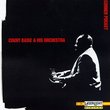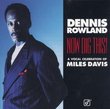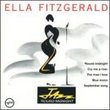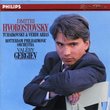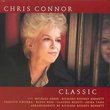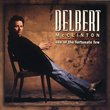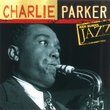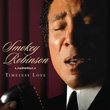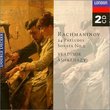| All Artists: Handel, Vivaldi, Horne Title: Arias Members Wishing: 0 Total Copies: 1 Label: Erato Release Date: 7/2/1996 Genre: Classical Styles: Opera & Classical Vocal, Historical Periods, Baroque (c.1600-1750) Number of Discs: 1 SwapaCD Credits: 1 UPC: 706301406922 |
Search - Handel, Vivaldi, Horne :: Arias
CD DetailsSimilarly Requested CDs
|
CD ReviewsOne of the many legacies of Marilyn Horne Harpsichord Fan | 07/19/2001 (4 out of 5 stars) "In terms of bel canto and Romantic opera, Marilyn Horne is and will always be remembered as a talented and unique milestone in the history of opera, a singer who set the standard for such roles as Adalgisa in Bellini's "Norma," Carmen in Bizet's opera of the same name, and various lead Rossini roles. To many connoisseurs of the opera of the Baroque age, Horne will be remembered as a pioneer, someone who singlehandedly took the forefront in reviving the castrato roles of Baroque opera's greatest son, Georg Friedrich Haendel, and encouraged other opera singers in the mainstream to do the same. We have Marilyn Horne to thank for the first Met staging of any Baroque opera, and also such mainstream singers as Cecilia Bartoli and Renee Fleming are indebted to her whenever they take the stage (or record) in such roles as Almirena or Alcina. Before Horne's pioneering work, Vivaldi was heard only in the concert hall, or occassionally in the church. Her encouragement of the performance of "Orlando furioso" for the 300th anniversary of the birth of Vivaldi marked a new chapter in the studies of Vivaldi's operas, as well as his other works and the operas of other Italian composers of the period. This CD recording is an important testament to Horne's legacy in the field of pre-Mozartean Italian opera. In displaying her vocal fireworks in "Or la tromba" and "Venti, turbini," and providing new shades of never heard before nuance in "Cor ingrato" and of course, "Ombra mai fu," Marilyn Horne shows her genuine appreciation for the operatic music of Haendel, which unfortunately was for a long time performed in the same fashion as, say, Baroque oratorio. In other words, Horne throws off "museum piece" notions of Baroque vocal music along with the notion that Baroque music is appropriate only in the art song recital (i.e., Parisotti's "Arie Antiche"). Although her rather excessively free ornamentation and elaboration can at times be unsettling, she nonetheless does a beautiful job and proves that Baroque vocal music is in very alive. Let us remember, the Baroque Age, whether the likes of Grout and Groves approve of it or not, was a very Romantic period: this was the age of Bernini's "Ecstasy of St. Theresa" and Farinelli, of Caravaggio and of le Roi soleil, Louis XIV. Horne finally shows that Baroque music must be percieved in the same strain as well. Now on to a few of the arias themselves. "Or la tromba" is magificently sung and played, and one admires both Horne's impressive command and agility of voice and her emphasis on making a castrato aria sound like a piece for a hero, thereby acquiring a manly and heroic timbre as opposed to a relatively seductive female one acquired by far too many recitalists. In "Ombra mai fu," she proves that the famous aria, formerly known as "Handel's Largo," can still have many things to offer in terms of interpretation and nuance. The opera "Serse," from which the aria is taken, is a combination of comic and romantic strains in opera, and Horne realizes that in her interpretation of the aria. In "Cor ingrato" and "Cara sposa," Horne shades and colours the arias to reveal the pain and suffering (and yet very Baroque self-conscious sentimentality) of the hero who has lost his beloved. There are, however, reasons for which I gave this CD 4 stars out 5, but let me first say that none of it is Marilyn Horne's fault. First of all, the Solisti Veneti under Maestro Scimone are nothing but of the highest caliber, but the orchestral playing is slightly sloppy at times and tends to weigh down in some places. Second of all, one should purchase this album for the Haendel arias and definetely not the Vivaldi arias, because the arias "Nel profondo," "Sorge l'irato," and "Fonti di pianto" are very facile and fluffy examples of Vivaldi's operatic output, which is better represented by Cecilia Bartoli's "Vivaldi Album" on the Decca label. But Marilyn Horne excels and amazes at every turn, and in every aria, therefore it does not really diminish my opinion of her or this CD in any way." Horne at her fiercest and most dazzling Daniel Rodriguez | Houston, TX United States | 05/17/2003 (5 out of 5 stars) "Having recently purchased this recital at budget price on the French label Erato, I can say without reservation that this is bar none one of the best recitals I have ever purchased. Marilyn Horne is triumphant, especially in the Rinaldo and Orlando arias. Listen to her rapid-fire delivery of Venti Turbini. She switches from very low to very high passages, with absolute ease and bravura. She also navigates the fiendishly difficult intervallic coloratura, which is much harder to sing than bel canto coloratura. Likewise, her Cara Sposa is a delight. If you want something sophisticated and stylish, listen to David Daniels. If you want to explore the depths of sorrow, listen to Marilyn Horne. (Both are viable choices in their own right)Marilyn also sings a variety of arias from other Handel operas, those currently being staged as part of the baroque revival that is taking part in the USA and Europe, which is reminiscient of the bel canto revival of the 50's. These offer more opportunities to hear her almost unprecedented octave range and breath control.The recital ends with three arias from Vivaldi's Orlando il Furioso. The second one really blows me away. This is quintessential Horne. She is glorious!"
|

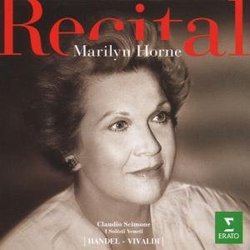
 Track Listings (12) - Disc #1
Track Listings (12) - Disc #1![header=[] body=[This CD is available to be requested as disc only.]](/images/attributes/disc.png?v=15401716)
![header=[] body=[This CD is available to be requested with the disc and back insert.]](/images/attributes/disc_back.png?v=15401716)
![header=[] body=[This CD is available to be requested with the disc and front insert.]](/images/attributes/disc_front.png?v=15401716)
![header=[] body=[This CD is available to be requested with the disc, front and back inserts.]](/images/attributes/disc_front_back.png?v=15401716)
